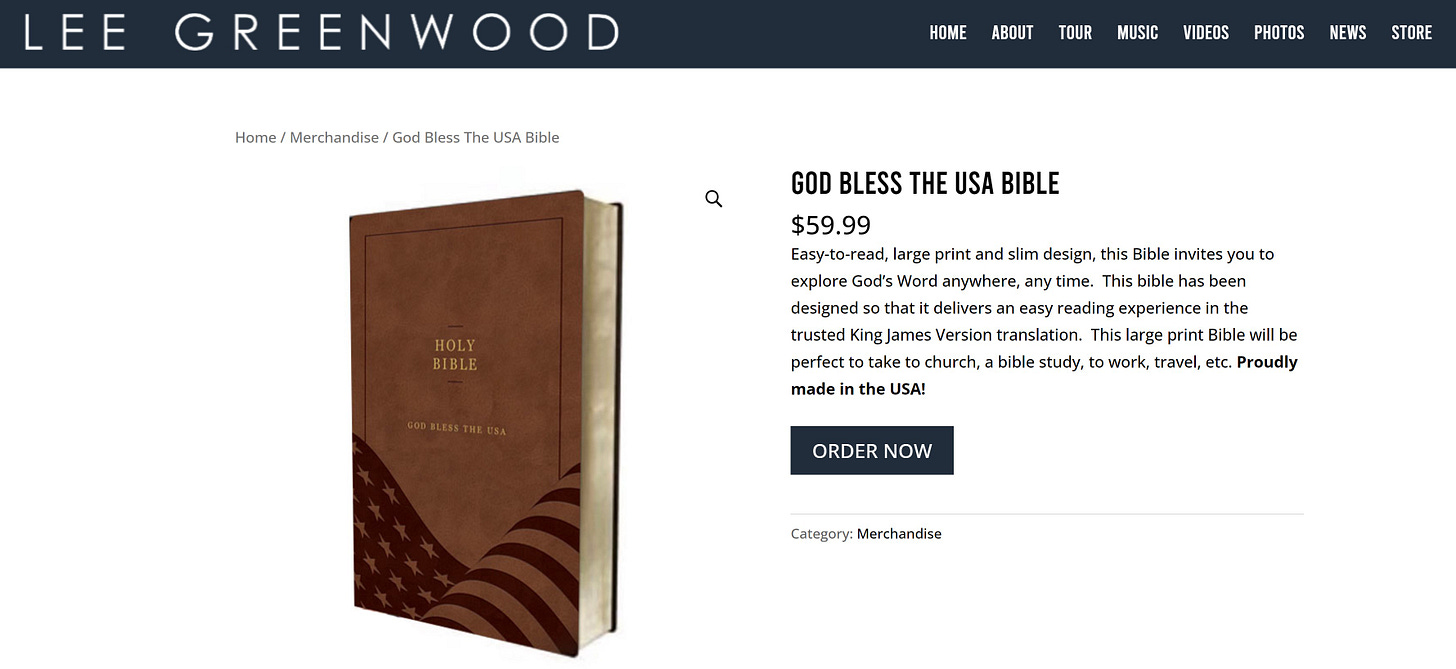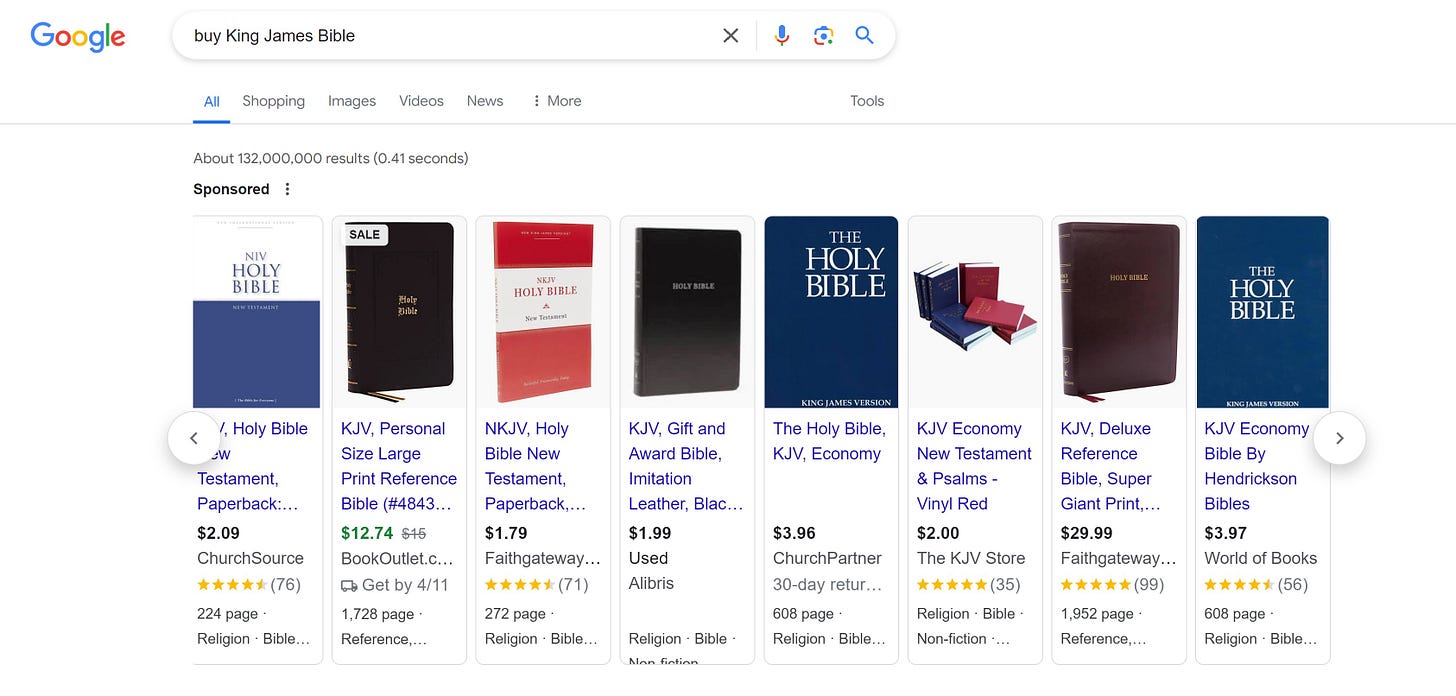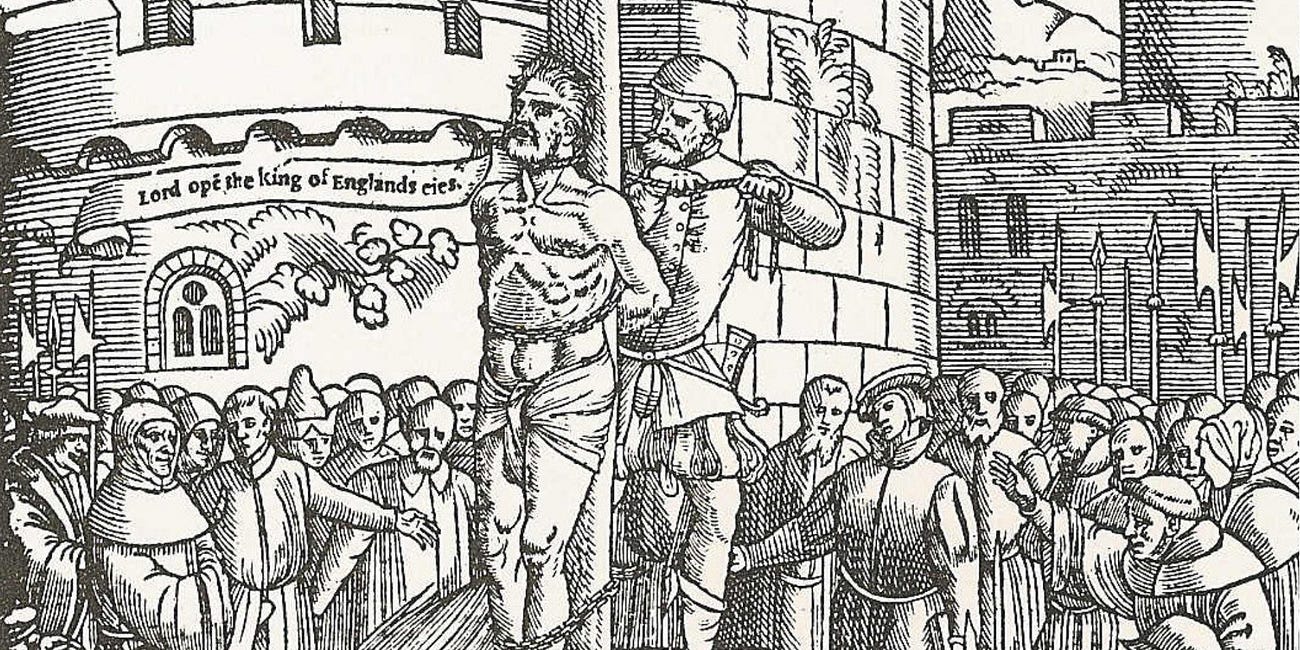I'm proud to be partnering with my very good friend Lee Greenwood. Who doesn't love his song God Bless the USA in connection with promoting the God Bless the USA Bible? This Bible is the King James version and also includes our Founding Father documents. Yes, the Constitution, which I'm fighting for every single day very hard to keep Americans protected. Also, the Bill of Rights, the Declaration of Independence, and the Pledge of Allegiance are all part of this God Bless the USA Bible, and just very important and very important to me. I want to have a lot of people have it. You have to have it for your heart, for your soul. Many of you have never read them and don't know the Liberties and rights you have as Americans and how you are being threatened to lose those rights. It's happening all the time. It's a very sad thing that's going on in our country, but we're going to get it turned around. Religion and Christianity are the biggest things missing from this country, and I truly believe that we need to bring them back and we have to bring them back fast. I think it's one of the biggest problems we have; that's why our country is going haywire. We've lost religion in our country. All Americans need a Bible in their home, and I have many. It's my favourite book; it's a lot of people's favourite book. This Bible is a reminder that the biggest thing we have to bring back America and to make America great again is our religion. Religion is so important, it's so missing, but it's going to come back and it's going to come back strong just like our country is going to come back strong. In the end, we do not answer to bureaucrats in Washington; we answer to God in heaven. Christians are under siege. We must protect content that is pro-God. We love God, and we have to protect anything that is pro-God. We must defend God in the Public Square and not allow the media or the left-wing groups to silence, censor, or discriminate against us. We have to bring Christianity back into our lives and back into what will be again a great nation. Our founding fathers did a tremendous thing when they built America on Judeo-Christian values. Now that foundation is under attack, perhaps as never before. What can we do? Stand up, speak out, and pray that God will bless America again. I'm proud to endorse and encourage you to get this Bible. We must make America pray again. Pray, get educated, get motivated, and stand with me and the legions of Americans asking God to bless our great nation, to bring our great nation back, and to make America great again. I'm proud to partner with Lee in this offering. He's a very special man, both as a talent but maybe even more so as a human being. He's very, very special, and I think you all should get a copy of the God Bless the USA Bible now and help spread our Christian values with others. There you have it. Let's make America Pray Again. God bless you and God bless the USA.
“…the Bill of Rights, the Declaration of Independence, and the Pledge of Allegiance are all part of this God Bless the USA Bible”.
“Religion and Christianity are the biggest things missing from this country, and I truly believe that we need to bring them back and we have to bring them back fast.”
“Our founding fathers did a tremendous thing when they built America on Judeo-Christian values.”
“We must make America pray again.”
“Let's make America Pray Again.”
When I first listened to that speech from Trump, all sorts of questions came to my mind:
Why is Trump selling Bibles?
Why is it the King James Version?
Why does it cost $59.99?
Why is he saying he will “make” people pray again?
What does he mean by it’s his “favourite book”? As he read it all?
What does he mean by needing to bring back “religion”? Any religion?
Why are Christians putting secular and political documents in sacred religious books?
Were the founding fathers mostly concerned about “Judeo-Christian Values” when they wrote the Declaration of Independence and the Bill of Rights?
How does he propose to “bring back” “Religion” and “Christians” “fast”?
What is his vision of the American Christian/Religious State exactly?
I’ve been reflecting on some possible answers over the past day or two, not least because it’s that time of the year when I think most about Jesus’ death, what has happened since that time in his name, and what he might think of it all.
First, why is this copyright-free King James Version sold for $59.99? You can purchase it for a couple of dollars in millions of places:
Indeed, many Bible societies will give you a free Bible and most churches will give you a free copy if you have no money:
Why do these people and organizations give Bibles away? Perhaps it’s because they are trying to be Christians.
For many, making a business from Christian teachings goes counter to the original or “First Principles Christianity”. This is in stark contrast with Christendom and its accumulation of material wealth, which is built on an authoritarian and unholy mix of the State and supposedly Christ’s teachings - “We will make you pray and you will pay for it”.
Left unchecked, the default mode of the unholy alliance of State and Church always leads to authoritarianism. Check out the history of Christendom if you don’t believe me. In this article, I will use the term “Christendom” to mean the unholy alliance of State and Church which first emerged following the Roman Emperor Constantine’s conversion to the early 4th-century church; this socio-politico-religious construct played a central role in governing and influencing the life and culture of the people, whether they wanted it or not. This influence has not been uniform over the centuries since then, as it has taken different forms in Eastern Orthodox, Roman Catholic, and Protestant regions. The idea of Christendom most famously underpinned the medieval crusades, aiming to spread Christianity with the expansion of European empires and typically a lot of violence. The history of Christendom is full of lovely laws making you do all sorts of things (and they usually get around to dealing with the Jews and anyone that dissents at some point, however friendly they appear at first). There’s even torture and burnings thrown in for good measure (ironically, even of those trying to translate Bibles).
Jesus and his early followers didn’t have “the Bible” as we know it; the last parts were written sometime after his death and it took a while before later church leaders agreed on its contents. Many still don’t agree, not just on the translations but even on the books to be included. For the uninitiated: the Bible is not a single book, but it’s a compilation of books covering over 1500 years of religious ideas - 66 books in the Protestant Church, 73 books in the Catholic Church, and 81 books of the Ethiopian Orthodox Tewahedo Church; the original King James Version is a version with 80 books, but later versions often omit the 14 books of Apocrypha.
But imagine that Jesus did have Bibles as he travelled around the Holy Land, do you think he would be selling them for a business? I don’t: “Let the one who is thirsty come; let the one who desires take the water of life without price." He also famously instructed his disciples, "Freely you have received; freely give." Jesus had only righteous anger for those who would profit from worship: ‘Is it not written, "My house shall be called a house of prayer for all the nations"? But you have made it a den of robbers.’"
If you haven’t read the Bible, I can recommend it (although there are some boring bits, to be fair). Don’t just say it’s your ‘favourite book’ without actually reading it from beginning to end. I hear this talk all the time. I will go further: try reading it a few times until you really understand what’s going on. Even if you don’t believe in Christianity or God, there are many reasons to read it, including understanding our current Western culture which has many roots in this ancient book (some good, some bad). You may not agree with all the values presented - from Genesis to the Book of Revelation. Jesus didn’t agree with it all; his teachings often contradicted earlier teachings found in the Bible. For example, Jesus was raised a Jew, but many of his teachings went against the “Judeo values” of his time, which of course led to his persecution and eventually death. His life was full of examples of fanatical Jewish leaders trying to do “gotcha moments” on him so that they could have him punished or killed for challenging their values. Here are just a few from the gospel of Matthew (there are many such instances):
Matthew 12 Healing on the Sabbath
In this instance, the Pharisees question Jesus about the lawfulness of healing on the Sabbath, hoping to accuse him of breaking Sabbath laws. Jesus responds by challenging their understanding of the law with a question and a parable. He asks if they would rescue a sheep fallen into a pit on the Sabbath, implying that human need supersedes Sabbath restrictions. Jesus asserts, "It is lawful to do good on the Sabbath" (Matthew 12:12), emphasizing the law's intent to serve life and goodness rather than restrict acts of mercy. Of course, even in the 21st century, there are plenty of fanatics who would disagree with Jesus.
When confronted about his disciples not washing their hands according to the tradition of the elders, Jesus counters by questioning the Pharisees and scribes on their practice of breaking God's commandment for the sake of their tradition. He criticizes them for prioritizing human traditions over divine commandments and highlights their hypocrisy. Jesus emphasizes that what defiles a person comes from the heart, not from external observance of traditions (Matthew 15:11). This response shifts the focus from ritual purity to moral and spiritual integrity. Again, I know a few religious fanatics who would strongly disagree with Jesus.
Matthew 19 Question About Divorce
The Pharisees test Jesus with a question about divorce, asking if it is lawful for a man to divorce his wife for any and every reason. Jesus responds by referring them to the creation narrative, emphasizing the sacredness of marriage as a union intended by God "from the beginning" (Matthew 19:4-6). He implies that the provision for divorce in the law of Moses was a concession to human hardness of heart, not the ideal. By doing so, Jesus redirects the conversation from legalistic allowances to the original divine intent for marriage, highlighting permanence and fidelity.
My favourite attempt at a “gotcha moment” was the one where Jewish religious leaders brought to Jesus a woman caught in adultery (it doesn’t say anything about the man involved). These are the Mosaic or “Judeo values” they were trying to use against him:
23 If a man happens to meet in a town a virgin pledged to be married and he sleeps with her, 24 you shall take both of them to the gate of that town and stone them to death.
This is how Jesus dealt with these “Judeo values”:
3 The teachers of the law and the Pharisees brought in a woman caught in adultery. They made her stand before the group 4 and said to Jesus, “Teacher, this woman was caught in the act of adultery. 5 In the Law Moses commanded us to stone such women. Now what do you say?” 6 They were using this question as a trap, in order to have a basis for accusing him.
But Jesus bent down and started to write on the ground with his finger. 7 When they kept on questioning him, he straightened up and said to them, “Let any one of you who is without sin be the first to throw a stone at her.” 8 Again he stooped down and wrote on the ground.
9 At this, those who heard began to go away one at a time, the older ones first, until only Jesus was left, with the woman still standing there. 10 Jesus straightened up and asked her, “Woman, where are they? Has no one condemned you?”
11 “No one, sir,” she said.
“Then neither do I condemn you,” Jesus declared. “Go now and leave your life of sin.”
Some say Jesus never defended the woman from stoning, because these verses do not appear in some early copies of John. Some scholars even say the verses come from Luke. I think most Christians accept that they are the words of Jesus. But it’s just another example of how people disagree about the Bible. To think that you can simply hold it in the air like a magic wand and unify the people is ridiculous and deeply ignorant of history. Christendom has had wars over its interpretations. There may well be wars again in the near future, if we are not careful.
Strangely, in England, the King James Version or “Authorized Version” is not out of copyright, even though it was written over 400 years ago. It’s the only translation protected by “Royal prerogative” rather than copyright and only the King’s Printer can give authorization to publish it. The Crown licenses publishers to reproduce it under letters patent. Other Royal charters permit the privileged institutions of the universities of Cambridge and Oxford to print it too. Why is this the case? Perhaps it’s because the King James Bible is very much a symbol of Christendom - the alliance between the State and the official Church. When I lived in Northern Ireland, many of the Protestants I met at that time believed that only the King James Version was from God! They truly believed that God worked through the 17th century State to produce holy scripture (this no doubt had something to do with their planting in Northern Ireland by British colonialists and corporations during the 17th century). These Protestant Unionists used this translation as a symbol of their political differences with the Catholics, who of course had their Pope-sanctioned translations. The belief that God specifically guided the translation process in the 17th century, makes this version of the Bible uniquely authoritative and sacred to the Protestant Unionists of Northern Ireland; it’s intertwined with the narrative of divine sanction for the political and social order it represents.
What would Jesus have thought about the alliance of the State with religion? Here are some Bible verses that spring to my mind, with my interpretations (many might disagree with my interpretations, and that’s fine as long as people don’t use their interpretations to go full authoritarian on us all; I won’t argue the matter, since people have spent hundreds of years constructing a whole industry around interpretations and my life is short and I have other articles to write and many “miles to go before I sleep”):
"My kingdom is not of this world." (John 18:36) This statement was made to Pontius Pilate, the Roman governor, during Jesus' trial. It's one of the clearest declarations that Jesus' mission and kingdom are spiritual rather than political or territorial. This indicates a delineation from worldly governments and a focus on a spiritual kingdom.
"Render therefore unto Caesar the things which are Caesar's; and unto God the things that are God's." (Matthew 22:21, Mark 12:17, Luke 20:25) In response to a question about paying taxes to the Roman Empire, Jesus made this statement. It's often interpreted as a directive for his followers to fulfil their civic duties (like paying taxes) without conflating those responsibilities with their spiritual obligations. This teaching suggests a distinction between the obligations to the state and God, discouraging the blending of religious faith with political power.
"Blessed are the peacemakers, for they shall be called children of God." (Matthew 5:9) Part of the Beatitudes in the Sermon on the Mount, this statement, while not directly about state alliances, emphasizes peace over conflict. These values contrast with many political systems and strategies that often resort to conflict to achieve their ends.
"The kings of the Gentiles lord it over them; and those who exercise authority over them call themselves Benefactors. But you are not to be like that." (Luke 22:25-26) Here, Jesus instructs his disciples on the nature of leadership and power in his kingdom, contrasting it with hierarchical and oppressive systems of worldly governments.
"If you belonged to the world, it would love you as its own. As it is, you do not belong to the world, but I have chosen you out of the world." (John 15:19) Here, Jesus highlights the distinction between his followers and the world's systems, including political entities. This further underscores the spiritual nature of his mission and the kingdom he proclaimed, which was distinct and separate from worldly power and politics.
"They are not of the world, just as I am not of the world." (John 17:16) In this prayer, Jesus speaks of his followers being not of the world, underscoring the separation between his kingdom and the earthly realm, including its political systems and allegiances.
Unlike many of our leaders today, I suspect that most of America’s “founding fathers” studied history and were smart enough to realize that if freedom and liberty were to last in the new nation they were forming there would have to be a clear separation between Church and State, between people’s private religious ideas and values and the worldly democratic political systems.
The early American colonies were marked by a variety of religious experiments and experiences. Some colonies, such as Massachusetts Bay, were founded for the express purpose of allowing a particular sect (Puritans, in this case) to establish a community grounded in their religious convictions. Other colonies, like Pennsylvania, were founded on principles of religious tolerance and freedom, as envisioned by Quaker leader William Penn. These religious experiments highlighted the challenges and tensions of religious uniformity and control.
Whilst some of these fundamentalist types were authoritarian in their worldview, others must have learnt something from their religious persecution in England and elsewhere. It may have been tempting for some of them to establish their own religious tyranny in the colonies given their wish to convert all nations to their version of Christianity, but at the same time, it was clear from history that it is both dangerous and antithetical to Christianity to blur the line between Jesus’ teachings (or their interpretations) and the State. In fact, as I have argued, Jesus would not have approved of any human kingdom, state, or nation claiming to act in his name. Jesus was not a nationalist. His Kingdom is not of this world.
The founding of the United States wasn’t simply influenced by the ideas of Christians or even just so-called “Judeo-Christian values”. Western law and ethics are influenced by Biblical ideas to some extent, but people need to be specific and nuanced in what they mean if they choose to use this term; it seems to me that there is some political signalling going on here, possibly around a strategic alliance of the contemporary organized religions of Judaism and Christianity, a point I will return to in a future article. Yes, many of the founding fathers were Christians of various sorts, but not necessarily in the way some might think today. As far as I know, all the founding fathers believed in a Creator (remember, this was before Darwin), but many were against dogma and organized religion.
Importantly, it was the Enlightenment, a cultural and intellectual movement that emphasized reason, individualism, and scepticism of traditional authority, which heavily influenced many of the founding fathers. In particular, they were influenced by John Locke who argued for the separation of church and state on the grounds that civil government concerned itself with the rights and freedoms of people in the material world, while the church dealt with individual souls' salvation. By separating church and state, they aimed to ensure that the government would not interfere with individuals' religious practices and that religious groups would not control the government. So it is not surprising that the First Amendment to the U.S. Constitution, part of the Bill of Rights ratified in 1791, explicitly forbids Congress from making laws "respecting an establishment of religion, or prohibiting the free exercise thereof." This language reflects a commitment to protecting individuals' rights to practice their religion freely while ensuring that the government does not endorse or enforce any particular religion, like Christianity. This amendment is a clear repudiation of the idea of a Christian nationalist state or any state based on religious dogma.
To messers. Nehemiah Dodge, Ephraim Robbins, & Stephen S. Nelson, a committee of the Danbury Baptist association in the state of Connecticut.
Gentlemen
The affectionate sentiments of esteem and approbation which you are so good as to express towards me, on behalf of the Danbury Baptist association, give me the highest satisfaction. my duties dictate a faithful and zealous pursuit of the interests of my constituents, & in proportion as they are persuaded of my fidelity to those duties, the discharge of them becomes more and more pleasing.
Believing with you that religion is a matter which lies solely between Man & his God, that he owes account to none other for his faith or his worship, that the legitimate powers of government reach actions only, & not opinions, I contemplate with sovereign reverence that act of the whole American people which declared that their legislature should "make no law respecting an establishment of religion, or prohibiting the free exercise thereof," thus building a wall of separation between Church & State. Adhering to this expression of the supreme will of the nation in behalf of the rights of conscience, I shall see with sincere satisfaction the progress of those sentiments which tend to restore to man all his natural rights, convinced he has no natural right in opposition to his social duties.
I reciprocate your kind prayers for the protection & blessing of the common father and creator of man, and tender you for yourselves & your religious association, assurances of my high respect & esteem.
Th Jefferson
Jan. 1. 1802.
Further reading:


















Share this post